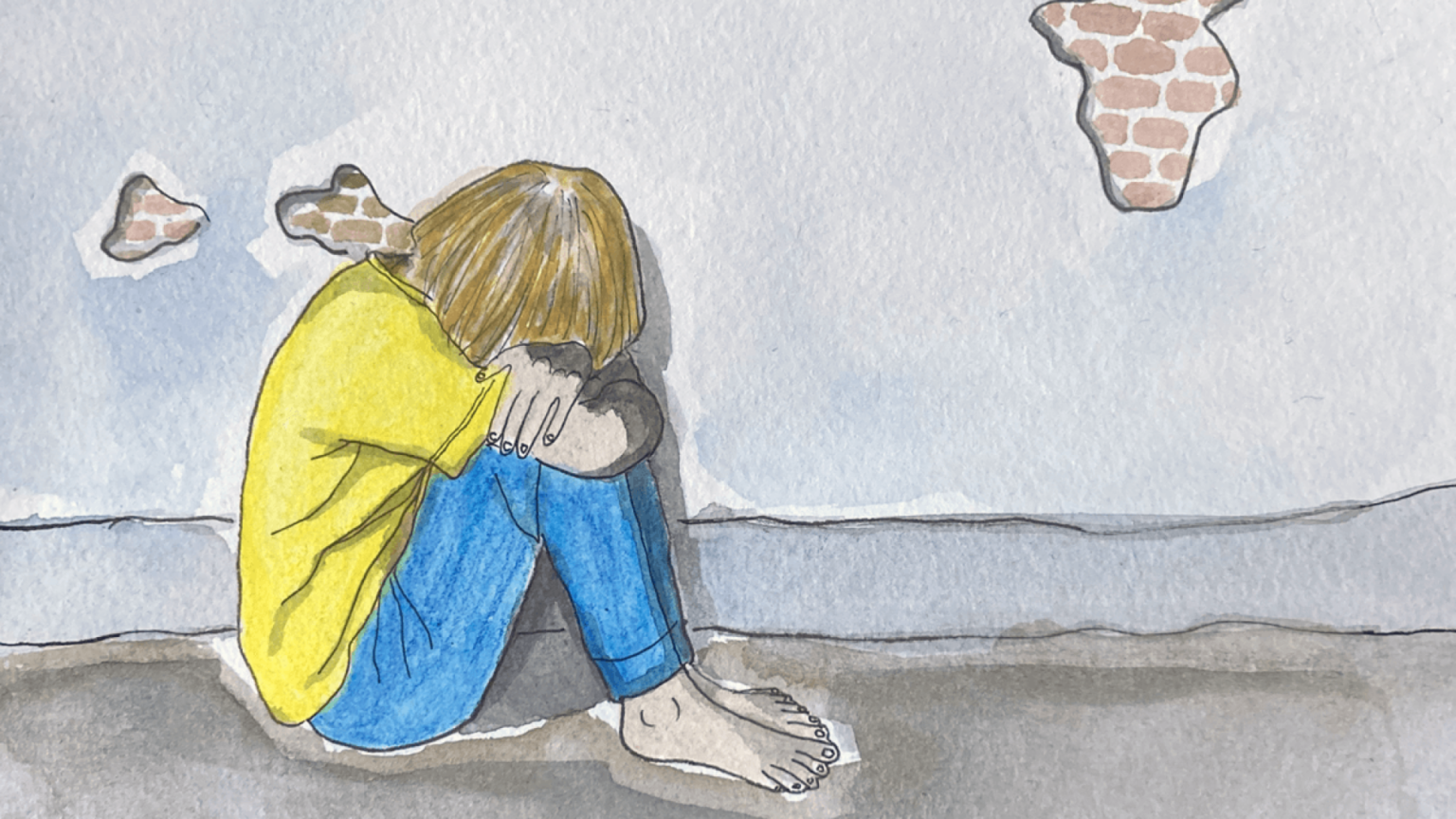
Russia’s invasion of Ukraine on February 24, 2022, shook the world as the first invasion of a sovereign European nation since World War II. The democratic world has responded to the invasion and subsequent human rights violations with harsh sanctions and international condemnation. Yet the fighting drags on. Thus far, 5.7 million Ukrainians have fled to neighboring countries to escape the conflict.
While Ukrainian refugees have generally been welcomed in their host countries, they are still at risk outside of Ukraine. Amongst the many perils of fleeing conflict, one particularly nefarious danger awaits those displaced: human trafficking.
Human traffickers thrive in conflict, when displaced persons are at their most vulnerable. When refugees are forced to leave their homes, they also leave behind their families, communities, and other forms of social support. Traffickers exploit this precariousness, using methods of force, fraud, or coercion to target these individuals.
In a new host country, refugees may not be familiar with the legal system or language, and are unlikely to have stable housing or income. Traffickers take advantage of this, using deceptive tactics to lure refugees into fraudulent travel and employment arrangements. For example, many refugees fleeing the Rohingya genocide in Burma were promised employment in Malaysia and Thailand. Instead, traffickers trapped the refugees on fishing vessels for purposes of forced labor. On the boats, the refugees faced horrible conditions, like water and food deprivation, torture, and rape.
Women and girls are particularly vulnerable to trafficking, comprising about 71 percent of trafficking victims. As refugees, women and children face heightened susceptibility to trafficking due to limited options for security and stability. For example, high numbers of refugee women and girls fleeing the Syrian civil war are trafficked in refugee camps in neighboring countries like Jordan, Lebanon, and Turkey. Syrian refugee women and girls are also vulnerable to forced or “temporary marriages” for the purpose of prostitution and other forms of exploitation.
In the case of Ukraine, organizations have already sounded the alarm on the potential trafficking of refugees. With women and children comprising 40 and 30 percent of Ukrainian refugees, respectively, vulnerability is high. Thousands of children fleeing Ukraine are believed to be unaccompanied.
What do the examples above have in common? Each refugee crisis was caused by an authoritarian regime.
In a 2018 report,HRF identified a strong link between authoritarianism and trafficking. Authoritarian regimes allow for human trafficking to flourish within their countries’ borders due to various factors, such as absence of rule of law, corruption, and lack of recourse for victims. In 2021, HRF found that 100 percent of the countries worst at combatting human trafficking were authoritarian.
Authoritarian regimes not only turn a blind eye to trafficking within their borders, but also generate trafficking through conflict and displacement. Regimes like Russia, Burma, and Syria instigate conflict to amass or maintain power, creating a swarm of refugees who are at high risk of trafficking among other human rights abuses.
To combat human trafficking, many organizations do the important work of informing refugees of trafficking schemes. Host governments ideally should work to provide resources to refugees to provide stability during transition.
However, to end the larger cycle of conflict, refugeeism, and human trafficking, we must advocate against authoritarianism and defend democracy. Otherwise, authoritarian states, headed by dictators like Vladimir Putin and Bashar al-Assad, will continue to perpetuate abuses, while democratic states are forced to handle the fallout. Caught in the middle, it is the innocent who suffer. For Ukraine, Putin’s desire to depose the democratic country’s government will create lasting repercussions not only for its refugees, but the countries that host and integrate them.
There are at least 24.9 million victims of human trafficking worldwide. Without addressing authoritarianism, the structural root of human trafficking, those numbers will only increase.
To help HRF contribute to life saving aid in Ukraine, support Operation Sunflower.
Illustration by @mbgrafiks.
Join us in helping save lives and stand up to tyranny.

Reach out with any questions or support needs.
Become part of our mission-driven team.
Find answers to commonly asked questions in our FAQs.
Hit enter to search or ESC to close